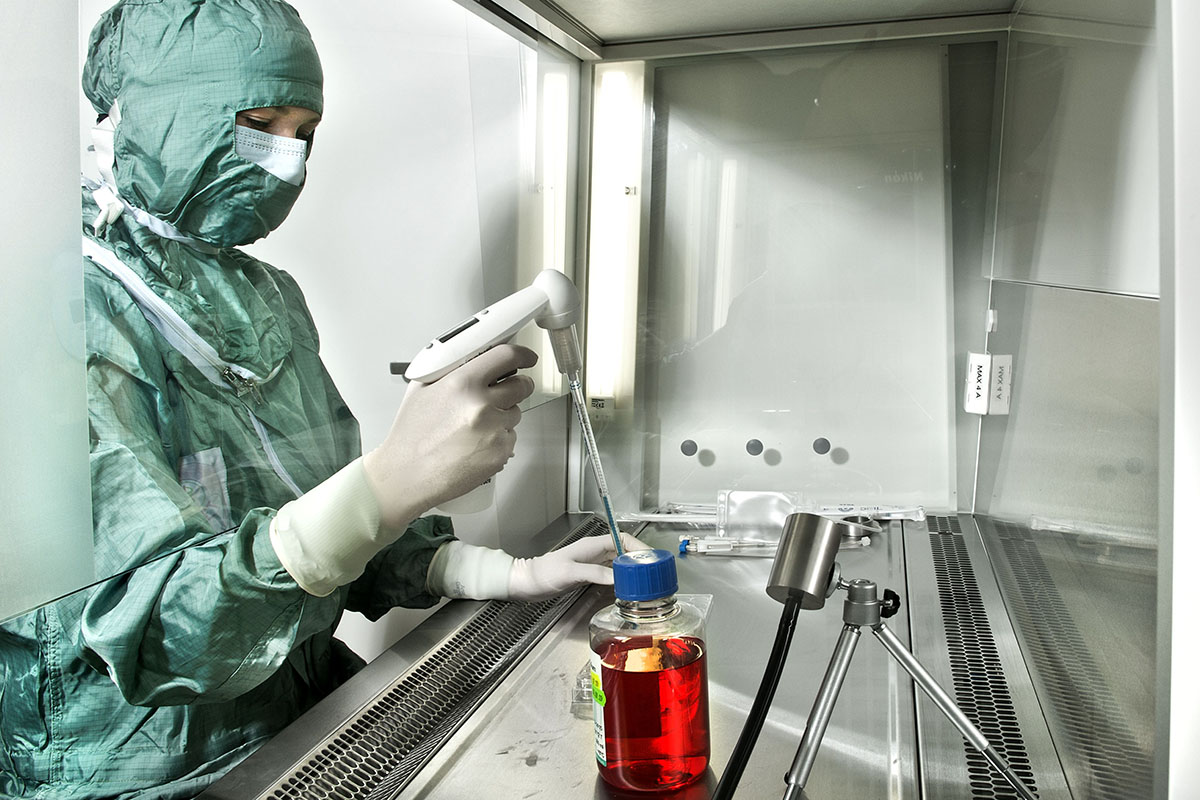ReSHAPE Workshop
5 December 2024
10117 Berlin
Friedrichstrasse, 96
Hotel NH Collection Berlin Friedrichstrasse
Learn more Event recording Understanding ReSHAPE
5 December 2024
10117 Berlin
Friedrichstrasse, 96
Hotel NH Collection Berlin Friedrichstrasse
Learn more Event recording Understanding ReSHAPE

Funded under: H2020 Programme

Coordinator: Charité – Universitätsmedizin Berlin
| DEC 2024 |
Understanding ReSHAPE Project and Immune Balance - Educating and Empowering Communities |
| 05-06 DEC 2024 |
ReSHAPE Final Meeting and Workshop on Next-Generation Treg Development |
| 05-06 DEC 2024 |
ReSHAPE Final meeting in Berlin on 05-06 December 2024 - SAVE THE DATE! |
| 04 AUG 2024 |
|
| 08 FEB 2024 |
|
| 18-19 SEP 2023 |
ReSHAPE Fourth Annual Meeting, 18-19 September 2023 in Berlin |
| 26-27 APR 2022 |
ReSHAPE Third Annual Meeting, 26-27 April 2022 (virtual event) |
| 10-11 MAR 2021 |
ReSHAPE Second Annual Meeting, 10-11 March 2021 (online event hosted by Innovation Acta) |
The ReSHAPE project has received funding from the European Union’s Horizon 2020 research and innovation programme under grant agreement n. 825392
→ more project details
ReSHAPE aims at transforming the treatment of patients suffering from undesired Immunity/Inflammation (Allotransplantation, Autoimmunity, Hyperinflammation, and Regenerative Medicine, including Gene Therapy) who presently have limited curative treatment options by applying next-generation Treg approaches that overcome the limitations of 1st generation Treg product developments.
ReSHAPE will use Treg therapy as a very promising new tool for reshaping undesired inflammation/immunity applicable in many disease situations with high unmet medical need which can be used as role model for any approach of next-generation ATMP (Advanced Therapy Medicinal Product).
ReSHAPE will create different platforms, such as a knowledge platform based on previous work of the consortium but also on applying new technology and medical approaches for improved Treg therapies, including next-generation Treg product platform, novel preclinical testing platform, clinical development and clinical trial platform, including accompanying biomarker studies, as well as a HTA/exploitation platform. The platforms comprise the components and expertise necessary to create a solid foundation on which to build new therapeutic Treg approaches and cell products beyond Treg and aim at overcoming particular development bottlenecks.
The ReSHAPE consortium will develop next-generation Treg products and will prove next-generation approaches in clinical trials.
ReSHAPE´s next-generation Treg therapy approaches are applicable for organ and hematopoetic stem cell transplantation and beyond in many medical indication fields, such as Autoimmunity, Hyperinflammation, and Regenerative Therapies, including Gene Therapies.
ReSHAPE´s next-generation Treg approaches will translate a significant technology progress in the advanced therapy field from early development to First-In-Human (FIH) clinical trials with a concept for moving forward further in the added value chain of ATMP implementation.
Understanding ReSHAPE Project and Immune Balance - Educating and Empowering Communities
ReSHAPE is thrilled to announce the launch of a new 2D animated multilingual video, created to engage and educate the general public— including patients and school children— about its core mission and objectives. The video also highlights the crucial concept of immune balance and its essential role in promoting and maintaining overall health. Watch the video.
ReSHAPE Final Meeting and Workshop on Next-Generation Treg Development
On December 5th and 6th, 2024, Berlin hosted the workshop on Next-Generation Treg Development, Product Characterization, and Biomarker Platform & Improvement of In Vivo Engraftment of Adoptively Transferred Tregs and final meeting of ReSHAPE. The event gathered around 70 participants. The workshop featured insightful presentations on the project's research activities and achievements, delivered by the Project Coordinator and consortium partners. Renowned external experts in adoptive Treg therapy also contributed, sharing their cutting-edge findings and perspectives on this transformative field. This gathering not only highlighted the significant progress made by ReSHAPE but also served as a vital opportunity to engage with the broader scientific community. By advancing knowledge critical to the future success of next-generation Treg therapies, the event reaffirmed its importance as a milestone in the evolution of adoptive Treg treatments.
Recording of the event is available here.
ReSHAPE Final Workshop on Next-Generation Treg Development and Biomarker Platforms – Berlin
We are excited to announce the ReSHAPE Final Workshop on Next-Generation Treg Development, Product Characterization, and Biomarker Platform & Improvement of In Vivo Engraftment of Adoptively Transferred Tregs, which will take place on December 5th in Berlin.
This workshop will showcase the research achievements of the ReSHAPE Project, with presentations by Prof. Petra Reinke, the Project Coordinator, and consortium partners. We will also host talks by renowned external experts and opinion leaders in adoptive Treg therapy, who will share their latest findings. This event is a valuable opportunity for the scientific community to engage with cutting-edge developments in next-generation Treg research.
The program will include one-on-one sessions, to be booked individually by the interested participants, to discuss specific topics of mutual interest, foster new collaborations, and build valuable networks.
The event is open to external participants. If you are interested to join please register to the event filling the form at this link by November 4th 2024.
Consider that the registration will be based on “first come, first served” criteria, and that participation in presence is restricted to a limited number of participants.
Please check the program.
Final meeting in Berlin on 05-06 December 2024 - SAVE THE DATE!
04 August 2024 - ProTreg study First patient in
We are excited to announce the enrollment of our first patient in the ProTreg study, marking a significant milestone in our journey to advance healthcare.
The “ProTreg Trial” will assess therapeutic feasibility, safety, tolerability and data suggestive of preliminary efficacy of Treg therapy with our polyclonally expanded Treg product as adjunct immunosuppressive treatment in deceased donor kidney transplants. The study aims to determine if administering deceased donor kidney transplants recipients with polyclonal ex-vivo expanded autologous Treg is safe. Moreover, we want to investigate if adoptive Treg therapy modulates the immunological response such that the kidney transplant is accepted and facilitates the immunosuppression maintenance therapy tapering or obviate it, thereby improving recipients’ long-term clinical outlook.
TregTacRes has been selected by EMA as part of the Pilot for academic and non-profit developers of advanced therapy medicines.
It's a great success for us that we now benefit directly from the expertise of the EMA and thus have an (even) greater chance of turning our project into reality! The aim of the pilot is to guide non-commercial developers of promising ATMPs addressing unmet medical needs through the regulatory and scientific requirements in the European Union (EU) and better understand their needs to enable them to advance the development of their medicines and eventually reach the marketing authorisation application stage.
ReSHAPE Fourth Annual Meeting, 18-19 September 2023 in Berlin.
ReSHAPE Third Annual Meeting, 26-27 April 2022 (online event hosted by Innovation Acta)
ReSHAPE Second Annual Meeting, 10-11 March 2021 (online event hosted by Innovation Acta)
Author perspective for publication on BMJ Opinion
ReSHAPE First Annual Meeting, 23-24 January 2020 Berlin, Germany
ReSHAPE participates to RESTORE 1ATSM in Berlin
Prof. Petra Reinke project Coordinator will give the talk “Reshape immune balance by next-generation regulatory T cells”
In the programme talks of Hans Dieter Volk (Charité), Julia Polansky-Biskup (Charité), Leila Amini (Charité), Joanna Hester (UOXF)
ReSHAPE Kick Off Meeting, 07-08 February in Berlin (Germany)
ReSHAPE website online
PROJECT | OBJECTIVES | WORK ORGANIZATION | GLOSSARY
Members of the consortium are pioneers in the development of Treg therapy from basic science to very recent encouraging First-In-Human (FIH) clinical trials of 1st generation Treg products. They have a longtrack record of collaboration, including EC-funded projects (e.g. IOT, RISET, One Study, BIO-DrIM). The first clinical trials were performed to combat organ transplant rejection and Graft-versus-Host Disease (GvHD) post allo-HSC transplantation. However, promising preclinical studies offer a broad application field of Treg therapy beyond allotransplantation.

Based on our extensive preclinical and first clinical data, we identified several opportunities for improving Treg therapy which will be addressed by ReSHAPE:
Dynamic tissue homeostasis is based on the crosstalk of intratissue parenchymal, stromal, and immune cells that is guided by the extracellular matrix “code” and regulated in a bi(multi)-directional way. Acute and chronic events such as trauma, ischemia/reperfusion injury, (auto/allo)-immune attack, challenge the homeostasis and result in adaptive processes, including further cellular recruitment. The fate of the tissue response is not only influenced by the strength and duration of the challenges but also by disease modifiers, such as age, malformation, metabolic disbalance.
It is becoming more and more clear that the intratissue balance of inflammation/immunity has a major impact on maintenance/restoration of tissue homeostasis by controlling the state and fate of progenitor/stem/ stromal cells and extracellular matrix dynamics.
Thymically derived FOXP3+ regulatory T cells (tTreg) constitute a unique T cell lineage that is essential for maintaining immune tolerance to self as well as innocuous environmental antigens and intratissue immune homeostasis. However, FOXP3 can also be turned on in conventional T cells with effector functions (Teff) as consequence of antigen exposure in the periphery, under both non-inflammatory and inflammatory conditions. These so-called peripheral Treg (pTreg) that involve both CD4+ and CD8+ pTreg cells, participate in the control of immunity at sites of inflammation. Both tTreg and pTreg can control inflammation/immunity by multiple mechanisms, such as i) competition with Teff for IL-2, ii) through cAMP-mediated immunosuppression, iii) adenosine production via the ectoenzymes, CD39 and CD79, iv) secretion of inhibitory cytokines (e.g. IL-10, TGF-ß, IL-33, IL-34), and v) cytolysis of Teff via granzyme/perforin-dependent mechanisms.
Diminished number and/or function of Treg, e.g. by malformation (e.g. IPEX syndrome), and disbalanced Teff/Treg ratio at the site of inflammation result in unwanted inflammation/immunity associated with autoimmunity, autoinflammation, and disturbed regeneration from trauma and ischemia/reperfusion. Consequently, agonistic targeting of Treg is a promising therapeutic option to combat undesired inflammation/immunity in a broad range of medical indications. Although in vivo Treg induction/expansion approaches, such as blocking co-stimulatory signals during antigen exposure, tolerogenic dendritic cells, tolerogenic peptide vaccination, and low-dose IL-2 show some efficacy in preclinical models and First-In-Human trials, their efficacy is limited and some adverse effects can be observed. In many preclinical models, the adoptive transfer of Treg is more effective. The recent (bio) technological advances to isolate and expand human Treg under GMP compliant conditions, now allow adoptive Treg therapy to be introduced to the clinic, opening up new opportunities.
Treg products (with or without genetic manipulation) for the adoptive transfer are regulatory categorized as Advanced Therapy Medicinal Product (ATMP). ATMP therapies are based on gene, cell or tissue-engineered products which are defined according to the terms of Regulation 1394/2007. So far, only a small number of these products have been placed on the market, not a single Treg product so far.
The ReSHAPE consortium will develop next-generation Treg products and will prove next-generation approaches in clinical trials.

CONSORTIUM | PARTNERS | CONTACTS | RESERVED AREA
The ReSHAPE consortium is coordinated by the Charité – Universitätsmedizin Berlin. The project coordinator is MD Petra Reinke, Professor of Nephrology and Transplantation within the following scientific topics: transplantation medicine, development of new diagnostic and therapeutic approaches in transplantation (non-invasive immune Biomarkers, detection and targeting of memory T cells and adoptive Teff/Treg T cell therapy) and founding director of the Berlin Center for Advanced Therapies (BeCAT) that 2017 received in a highly competitive procedure a 30 Mio € funding by the German Council of Science and Humanities.
ReSHAPE Third Annual Meeting, 26-27 April 2022
 Online event hosted by Innovation Acta
Online event hosted by Innovation Acta
ReSHAPE Second Annual Meeting, 10-11 March 2021
 Online event hosted by Innovation Acta
Online event hosted by Innovation Acta
ReSHAPE First Annual Meeting, 23-24 January 2020
 Berlin (Germany)
Berlin (Germany)
ReSHAPE Kick Off Meeting, 07-08 February 2019
 Berlin (Germany)
Berlin (Germany)
PUBLICATIONS | CONFERENCES | PRESS RELEASES